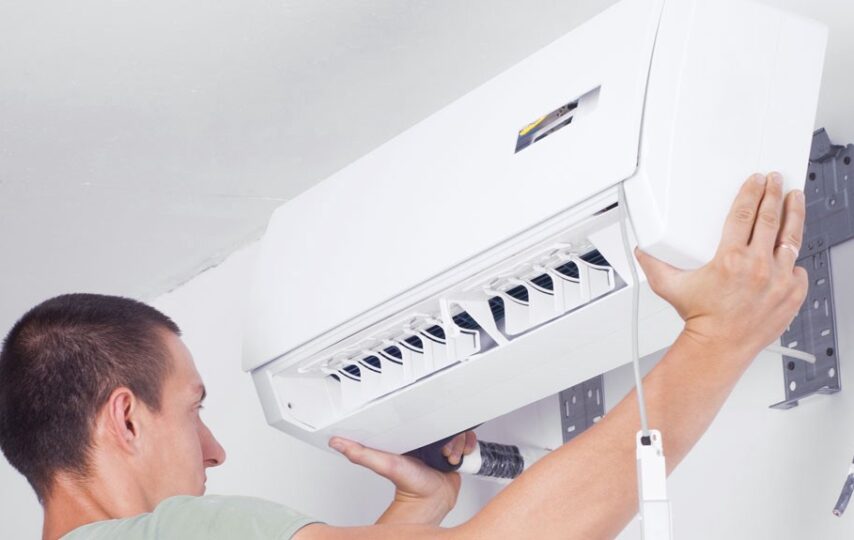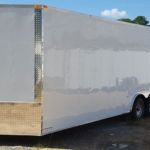As the summer heat intensifies, it becomes crucial to have a reliable and efficient air conditioning unit to ensure indoor comfort. However, as time goes by, air conditioners can deteriorate, leading to decreased effectiveness or even complete malfunction. In this blog post, we will delve into the signs that suggest it might be time to replace your air conditioning unit. Additionally, we will explore the key factors you should consider when faced with this critical decision. With these indicators and understanding the essential considerations, you can make an informed choice regarding air conditioning replacement.
1. Age of the Air Conditioning Unit:
Age is a crucial factor in determining whether to replace your air conditioning unit. Most units have a lifespan of 10 to 15 years. If your team is approaching or has exceeded this timeframe, it’s worth considering a replacement. Older units often become less energy-efficient over time, resulting in higher electricity bills. Moreover, they may require frequent repairs, leading to increased maintenance costs. By replacing your aging unit, you can enjoy the benefits of improved energy efficiency and avoid the hassle and expenses associated with constant repairs.
2. Frequent Breakdowns and Repairs:
Frequent repairs and constant breakdowns are clear indicators that it may be time to replace your air conditioning unit. Constantly calling for repairs can be expensive and disruptive, and it suggests that your unit is nearing the end of its lifespan. By investing in a new air conditioning system, you can enjoy the peace of mind that comes with a reliable unit and minimize the inconvenience of unexpected breakdowns. By transitioning to a new system, the frequency of repairs is minimized, resulting in a more pleasant and trouble-free cooling experience within your home.
3. Rising Energy Bills:
If you’ve noticed a consistent rise in your energy bills despite no changes in your usage, your air conditioning unit may be to blame. As units age, their energy efficiency tends to decline, resulting in increased electricity consumption to cool your home. By upgrading to a newer, energy-efficient model, you can achieve long-term cost savings by reducing your energy consumption. These modern units are designed to maximize efficiency, allowing you to enjoy a comfortable indoor environment while minimizing the financial burden of high energy bills. Investing in an energy-efficient air conditioning unit is a smart choice for both your wallet and the environment.
4. Inadequate Cooling and Poor Air Quality:
When your air conditioner struggles to effectively cool your home or if you experience a decline in air quality, it could be a sign that it’s time for a replacement. As air conditioning units age, they may have difficulty maintaining consistent temperatures or distributing air evenly throughout your space. Outdated systems may also need to adequately filter out dust, allergens, and pollutants, resulting in poor indoor air quality.
Another issue that can arise with aging air conditioning units is poor air quality. As the unit gets older, it may have difficulty filtering out dust, allergens, and pollutants from the air. This can lead to reduced indoor air quality, which can cause respiratory issues and allergies.
If you notice these signs and your air conditioner is struggling to cool your home or maintain air quality, it may be time to consider replacing it. A new and more efficient air conditioning system can provide better cooling performance, improved air filtration, and enhanced energy efficiency, ultimately leading to increased comfort and lower energy costs.
It’s a good idea to consult with a professional HVAC technician who can assess your specific situation and recommend the most appropriate course of action, whether it’s repairing or replacing your air conditioning unit.
5. Advancements in Technology:
Air conditioning technology has advanced significantly in recent years, providing numerous advantages over older models. Modern units are equipped with features like programmable thermostats, smart controls, and improved energy efficiency ratings. By replacing your outdated air conditioning unit, you can harness these technological advancements and experience enhanced convenience, control, and energy savings. Programmable thermostats allow you to set customized cooling schedules, optimizing comfort and energy usage. Smart controls enable remote access and management of your AC system via mobile devices. Additionally, newer units boast improved energy efficiency, reducing your carbon footprint and potentially lowering utility bills. Upgrading to a new air conditioner brings you the benefits of modern technology for a more efficient and comfortable cooling experience.
Conclusion:
Knowing when to replace your air conditioning unit is crucial for maintaining comfort, energy efficiency, and indoor air quality in your home. By considering factors such as the age of the unit, frequent breakdowns, rising energy bills, inadequate cooling, and technological advancements, you can make an informed decision. Remember to consult with an HVAC maintenance professional who can assess your specific needs and recommend the best replacement options. Investing in a new air conditioning unit can provide long-term benefits and ensure your home remains a cool and comfortable retreat during the hot summer months.







